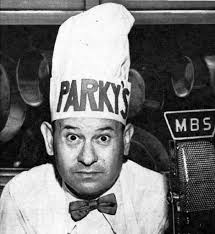To die: what an awesome thing!
January 5, 2014
My best friend was up in Nantucket at one of those places where you leave things you have no further use for and other folks take them home. Lou spotted a set of CDs containing dozens of vintage recordings of operatic arias. Being my best friend, he brought them back for me. One of the singers who was well represented on the discs was the American baritone Leonard Warren, whose voice I hadn’t heard in many years.
Just seeing Warren’s name in the play list evoked for me a vivid memory of a Friday night — March 4, 1960 — when I was watching television and heard a bulletin announcing that Warren had died that night on the stage of the Metropolitan Opera in Manhattan while performing the role of Don Carlo in Giuseppe Verdi’s opera La Forza del Destino. Warren, 48, collapsed after singing the aria “Urna fatale del mio destino” which is introduced with the words “Morir: tremenda cosa” — “to die: a momentous thing.”
I was 17 when Leonard Warren died, and I was already an opera fan, so learning of his passing in that abrupt fashion made a strong impression on me. I was disappointed, but the dramatic aspects of Warren’s death — with his boots on, as it were — weren’t lost on me. I have a recurring daydream of one day slumping over my keyboard, though I have had to amend it over time from a bulky steel Royal to an IBM Selectric to a variety of front-end terminals and PCs. When those who still remember my name hear how I cashed out, they’ll purse their lips, nod, and mutter, “Of course. How else would he go?”
If I ever do join Warren in that exclusive society, he won’t be the only entertainer I find among those with club-room privileges. Harry Parke, for example, could hardly have picked a more auspicious context for his final bow. Parke, who is largely forgotten, was a former newspaper man who more or less wandered into comedy by way of Eddie Cantor’s radio show. Parke developed a character he called Parkyakarkus and did a schtick in which he spoke in a garbled form of Greek. He eventually had his own radio show, and he appeared in nearly a dozen movies from 1936 to 1945. He also made a lot of money in real estate.
On November 24, 1958, Parke was appearing at the Friars Club in Beverly Hills at a roast of Lucille Ball and Desi Arnaz. He had just finished what reportedly was a very successful riff on the honorees when he slumped over onto Milton Berle. Berle asked if there were a doctor in the house and the line — understandably in that context — got a big laugh until folks realized that Parke was really ill. Five physicians who were among the Friars worked hard to save Parke, but he died after about two hours at the age of 54. His sons include the comics Albert Brooks and Bob Einstein (Super Dave Osborne) and the versatile writer Charles Einstein.
Many years ago, I met a man who eventually would fall into this rarefied category: the comedian Dick Shawn. I met Shawn while he was appearing in a play in a regional theater, but his career for more than 35 years was principally as a stand-up comic. He did appear in some movies, including the iconic It’s a Mad, Mad, Mad, Mad, World, and the Springtime for Hitler segment in The Producers, and he was a familiar figure on television as a comedian and as an actor.
On April 17, 1987, Shawn performed at the University of California at San Diego. During a routine in which he was talking about he and the audience surviving a nuclear war, he collapsed on the stage, the victim of a massive heart attack. The audience thought his fall was part of the act and didn’t leave even when they were told to after someone had gone onto the stage to examine Shawn. He was 63.
If you click HERE, you can see and hear Leonard Warren, in a television performance, singing the prologue from Ruggero Leoncavallo’s I Pagliacci.



